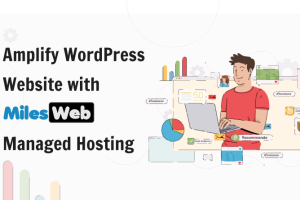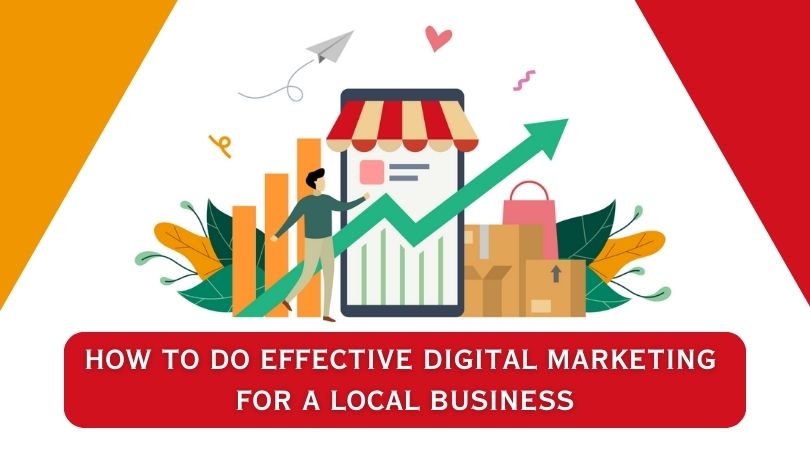Search Engine Optimization (SEO) remains crucial to ensuring your website’s visibility and success. SEO strategies have seen significant transformations over the years, and one element that has gained immense importance is user-generated content (UGC). This blog post researches the symbiotic relationship between user-generated content and SEO, explaining how community contributions can significantly enhance your website’s performance and rankings.
What is User-Generated Content (UGC)?
User-generated content, as the name suggests, is content created by users or customers rather than the brand or website itself. This content can take various forms, including product reviews, testimonials, comments on blog posts, forum discussions, social media posts, and more. UGC is essentially the digital equivalent of word-of-mouth marketing, where your audience becomes your advocates, sharing their experiences and insights.
The SEO Benefits of User-Generated Content
Enhanced Keyword Diversity
One of the primary benefits of user-generated content for SEO is the diversification of keywords. When users create content, they often use language and keywords that resonate with them. This diversity can expand your website’s keyword portfolio, making it more likely to appear in various search queries. It’s a win-win situation, as more keyword diversity means more opportunities to rank in search engine results pages (SERPs).
Fresh and Regular Content Updates
Search engines favor websites that consistently provide fresh and relevant content. User-generated content helps achieve this by constantly updating your website with new reviews, comments, and discussions. This freshness signals to search engines that your site is active and valuable to users, which can boost your rankings.
Increased Engagement and Time on Site
When users contribute content to your website, they are more likely to engage with it. They’ll revisit to check responses and interact with other community members. This increased engagement and longer time spent on your site are key SEO factors, as they indicate to search engines that your website offers valuable and engaging content.
Builds Trust and Credibility
UGC, such as reviews and testimonials, can greatly impact your brand’s trustworthiness. Positive user reviews are social proof, reassuring potential customers about your product or service. Search engines consider trust and credibility as ranking factors, so user-generated content can indirectly influence your SEO efforts.
Optimizing Website Architecture for SEO
In addition to encouraging user-generated content, optimizing your website’s architecture for SEO is crucial. An SEO-friendly site ensures that search engines can crawl, index, and rank your content effectively. Here are some tips on how to optimize website architecture for SEO:
- Clear and Logical Site Structure: Organize your website’s content logically with clear categories and subcategories. This helps both users and search engines navigate your site easily.
- User-Friendly URLs: Use descriptive and SEO-friendly URLs that include relevant keywords. Avoid long and cryptic URLs that can confuse search engines and users.
- Mobile-Friendly Design: Ensure that your website is responsive and mobile-friendly. Google and other search engines prioritize mobile-friendly websites in their rankings.
- Fast Page Loading Speed: Page speed is a crucial SEO factor. Optimize your website’s images, use browser caching, and minimize code to improve loading times.
Encouraging User-Generated Content
Now that you understand the benefits of user-generated content and SEO let’s explore how to encourage and leverage it effectively.
Create Engaging Content and Conversations
When you want people to share their thoughts and ideas on your website, you must ensure your content is interesting and worth talking about. It’s like starting a good conversation at a party – you want people to join in.
So, when you create articles or posts, ensure they’re well-written and grab people’s attention. Ask questions and encourage people to give their opinions. Imagine you’re having a friendly chat and want everyone to feel like their thoughts matter.
Implement User-Friendly Tools and Features
Think about making it easy for folks to join the conversation on your website. Imagine you’re throwing a party and want everyone to feel welcome and comfortable. That’s how you should design your website.
Add features like comment sections, forums, or places for people to leave reviews. These tools are like opening up different rooms at your party for different types of conversations. Also, make sure your website works well on phones and tablets so more people can join in–it’s like making sure your party venue is accessible to all.
Promote Social Sharing
Just like you’d want your friends to talk about your party, you want people to share what they find on your website with others on social media. It’s like asking your guests to spread the word about your awesome gathering.
Encourage your website visitors to share what they like on their social media accounts. You can make this easier for them by adding buttons that let them easily post your content on platforms like Facebook, Twitter, or Instagram. When they share, it’s like they’re inviting more people to join your party and have a good time.
Reward and Recognize Contributors
Recognize and reward your most active contributors. Consider implementing a points system or badges for users who frequently engage with your content. Recognition can motivate users to continue participating and become loyal advocates for your brand.
Moderation and Quality Control
While you want to encourage user-generated content, it’s crucial to maintain quality and moderate submissions. Implement moderation guidelines to ensure that inappropriate or spammy content doesn’t tarnish your website’s reputation.
Measuring the Impact of User-Generated Content on SEO
To understand the effectiveness of your user-generated content and SEO, you can track various key performance indicators (KPIs):
- Keyword Ranking Improvements: Monitor the ranking changes of your website for targeted keywords after implementing user-generated content strategies.
- Traffic and Engagement: Analyze the increase in website traffic and user engagement metrics, such as time on site, page views, and bounce rate.
- Conversion Rates: Measure how UGC influences conversion rates, such as product purchases or lead generation.
- Social Media Metrics: Keep an eye on the social media shares and mentions of your user-generated content.
- Reviews and Ratings: Track the number of positive reviews and high ratings, which can directly impact user trust and SEO.
Case Studies: Brands Leveraging User-Generated Content for SEO Success
Let’s take a look at a couple of examples of brands that have effectively harnessed the power of user-generated content to boost their SEO:
TripAdvisor
TripAdvisor, a well-known travel platform, relies heavily on user-generated content in the form of hotel and restaurant reviews. This extensive library of user reviews helps travelers make informed decisions and provides TripAdvisor with a wealth of fresh, relevant content that ranks well in search engines.
Airbnb
Airbnb encourages hosts and guests to leave reviews and share their experiences. These reviews not only build trust within the Airbnb community but also contribute to the SEO success of the platform. User-generated content adds valuable keywords and continuously updates their listings.
Experience the Power of User-Generated Content and SEO
The connection between user-generated content and SEO has emerged as a powerful tool that can significantly boost your website’s rankings and engagement.
Fostering a vibrant community of contributors and implementing effective strategies harnesses the collective voice of your audience to enhance your online presence and drive organic traffic. Remember that user-generated content is not just about SEO; it’s also about building trust, credibility, and lasting relationships with your customers. So, embrace the power of community contributions and watch your website thrive in the digital landscape.














